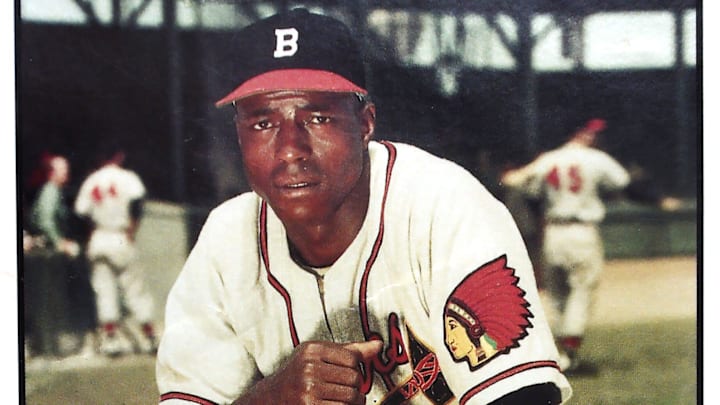When Atlanta Braves center fielder Michael Harris II was named 2022 NL Rookie of the Year, he was following in the footsteps of the franchise’s first African-American player, Sam Jethroe. I've written about Sam before, but his story is worthy of noting today.
In 1950, the Atlanta Braves Franchise became the fourth in baseball and the third in the NL to add an African-American player to their Major League roster, when they signed Samuel Jethroe.
The rookie years of Harris and Jethroe have many similarities, but the roads each player took to that rookie year are lightyears apart.
For Harris, it began when the Atlanta Braves drafted the 18-year-old outfielder in the third round of the 2019 Amateur Draft. Three years later, Dana Brown convinced Atlanta Braves GM Alex Anthopoulos that Harris was ready despite his lack of experience, and at 21, Money Mikey became the club’s starting center fielder.
Different Times, Different Standards for “Ready”
At 18, Sam Jethroe was playing pickup ball on a segregated team in East St Louis. At 21, he played three games for the Indianapolis Clowns of the Negro American League but had to quit to return to St Louis to care for his ailing mother.
In 1942 Jethroe began playing for the Cleveland Buckeyes. Over the next four years, he earned a spot in four All-Star Games, batted .321/.366/.475/.841 with a 157 OPS+, and helped them win the 1945 Little World Series.
Under public pressure to integrate the majors, the Red Sox paid lip service to the idea by inviting three Negro League stars to Fenway for a tryout, Jethroe, Jackie Robinson, and Marvin Williams.
The Red Sox didn’t contact any of them once the tryout ended, saying they ”had all the potential, but it wasn’t the right time.”
Branch Rickey disagreed. He interviewed both Jethroe and Robinson, eventually signing both players, Robinson in 1946 and Jethroe in 1948.
